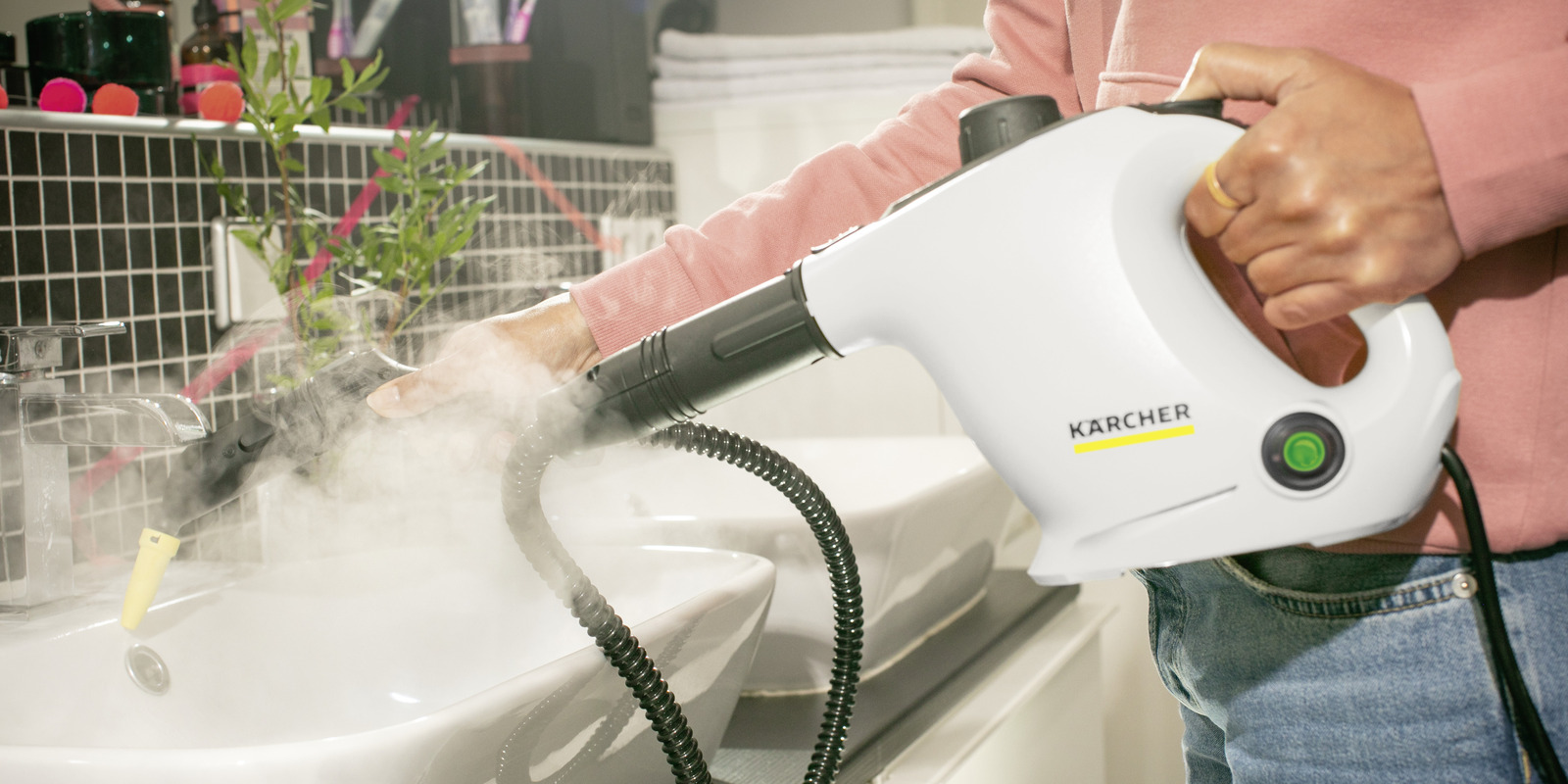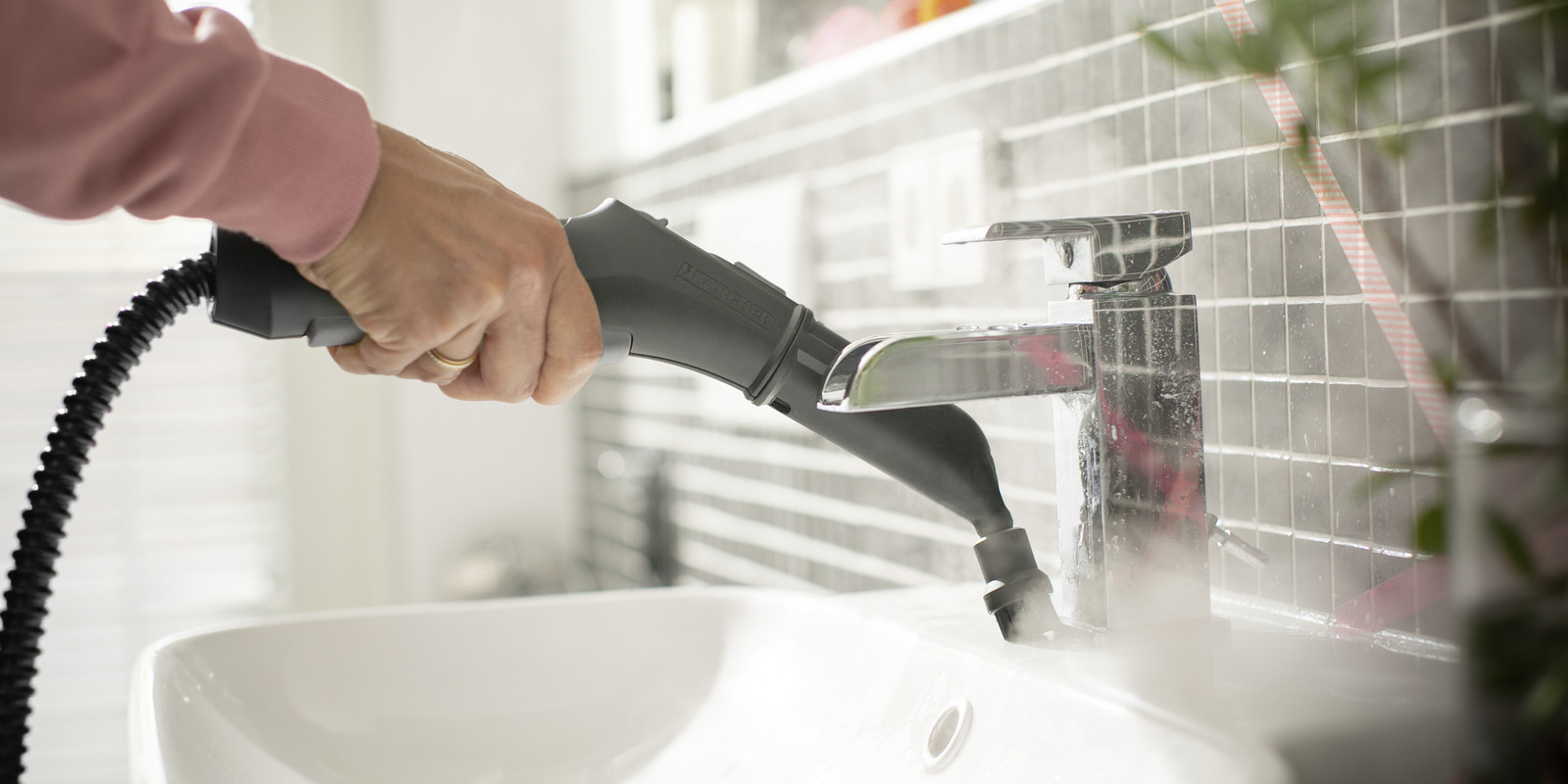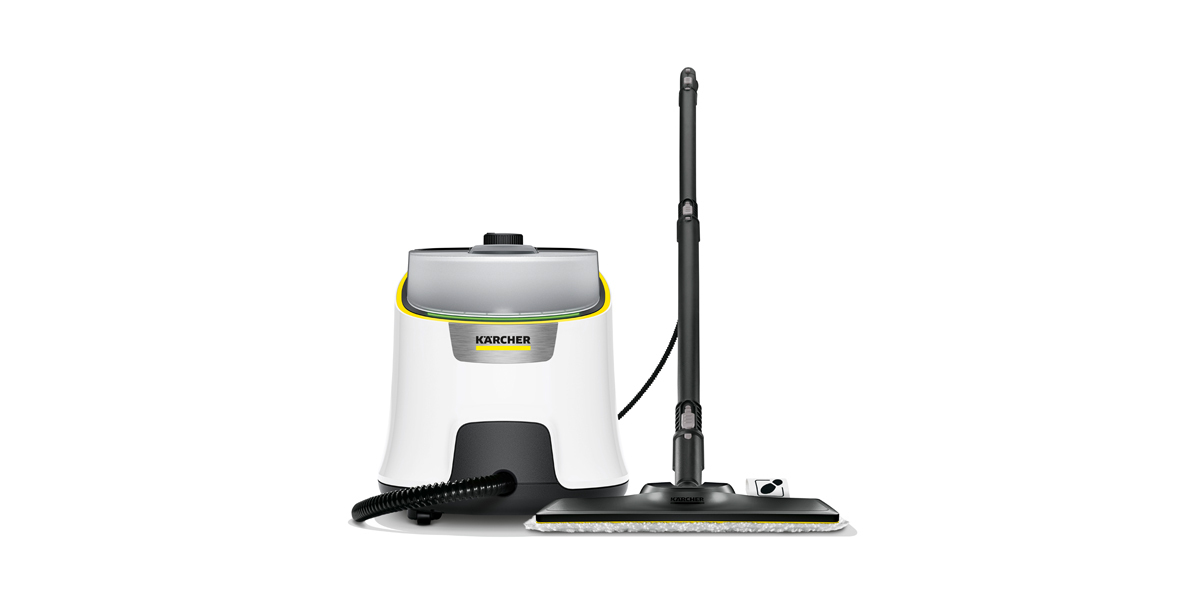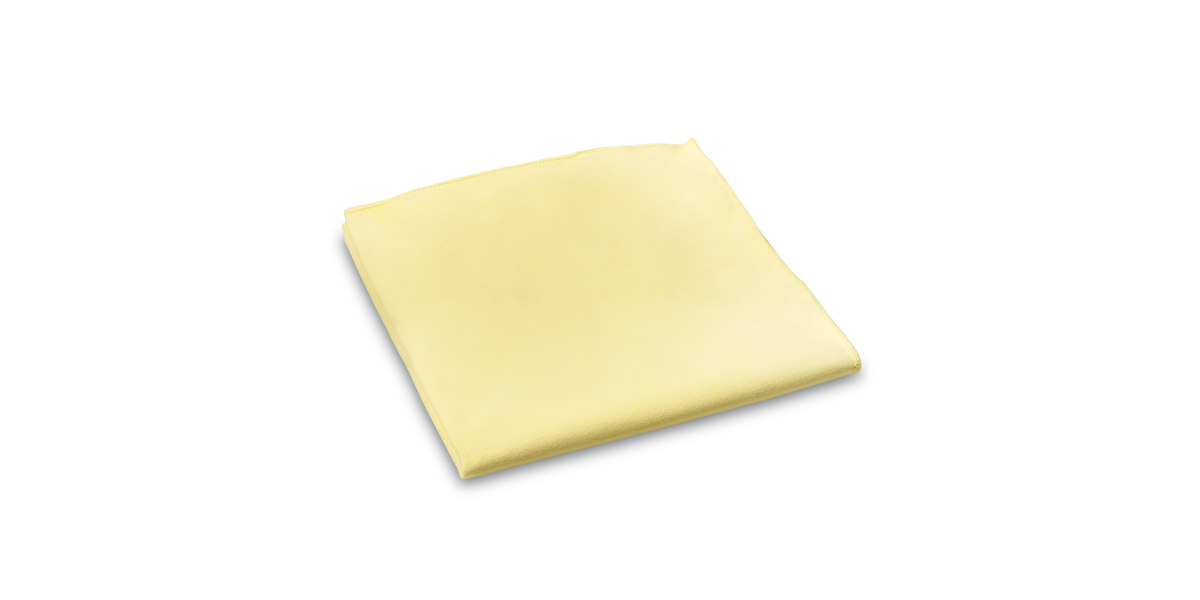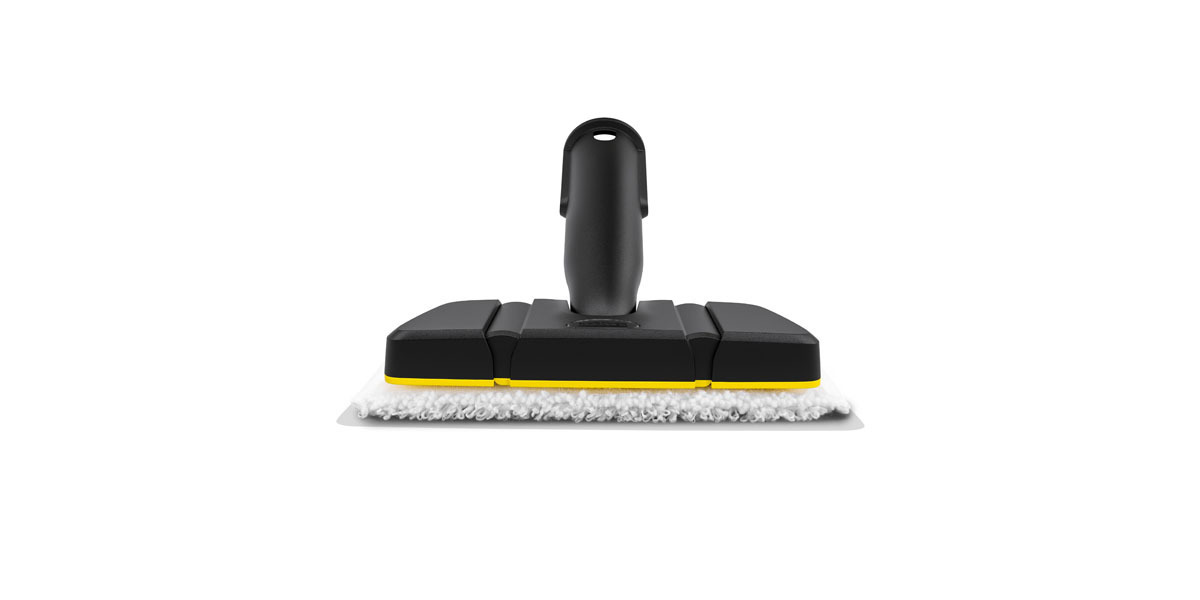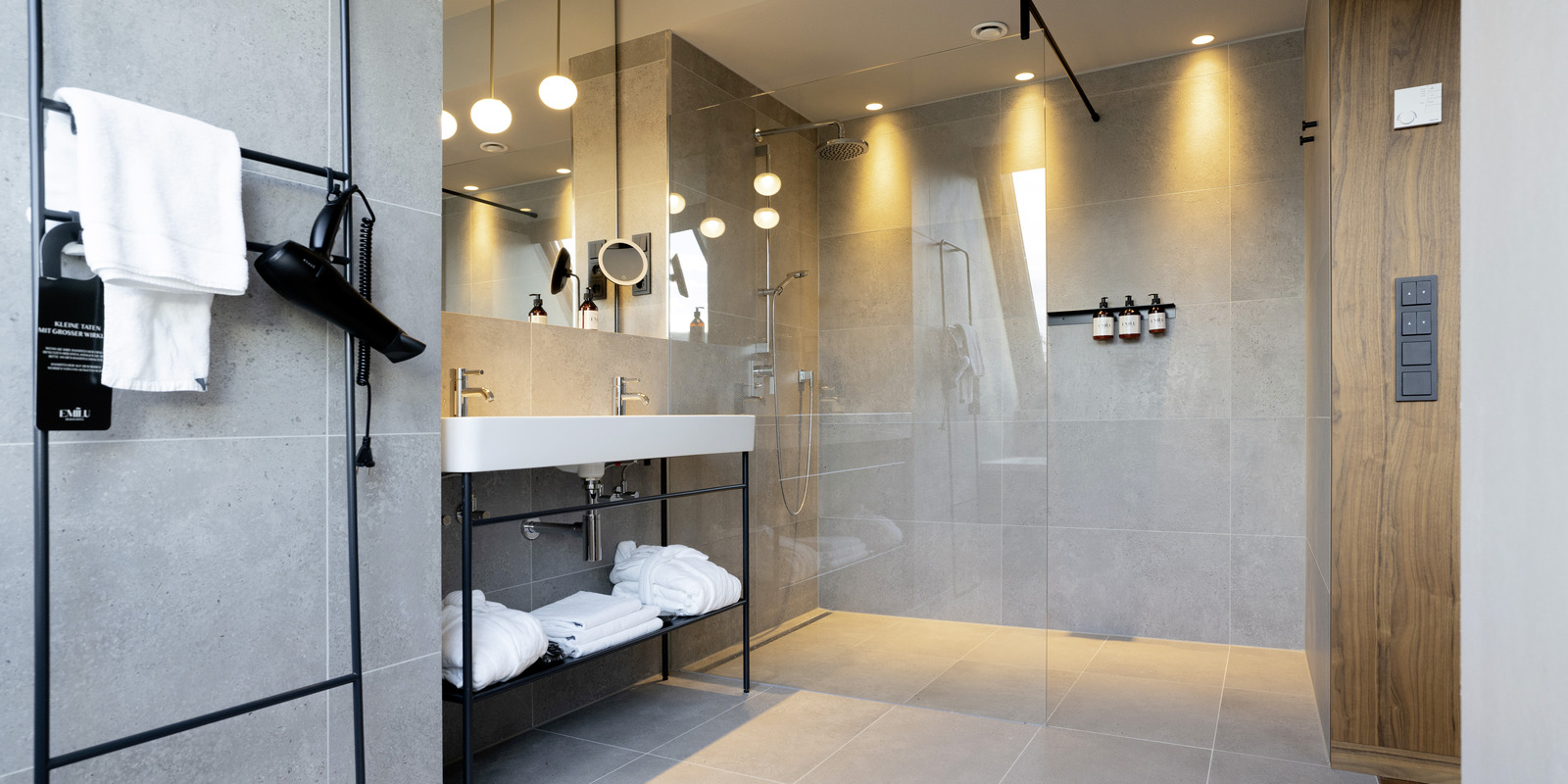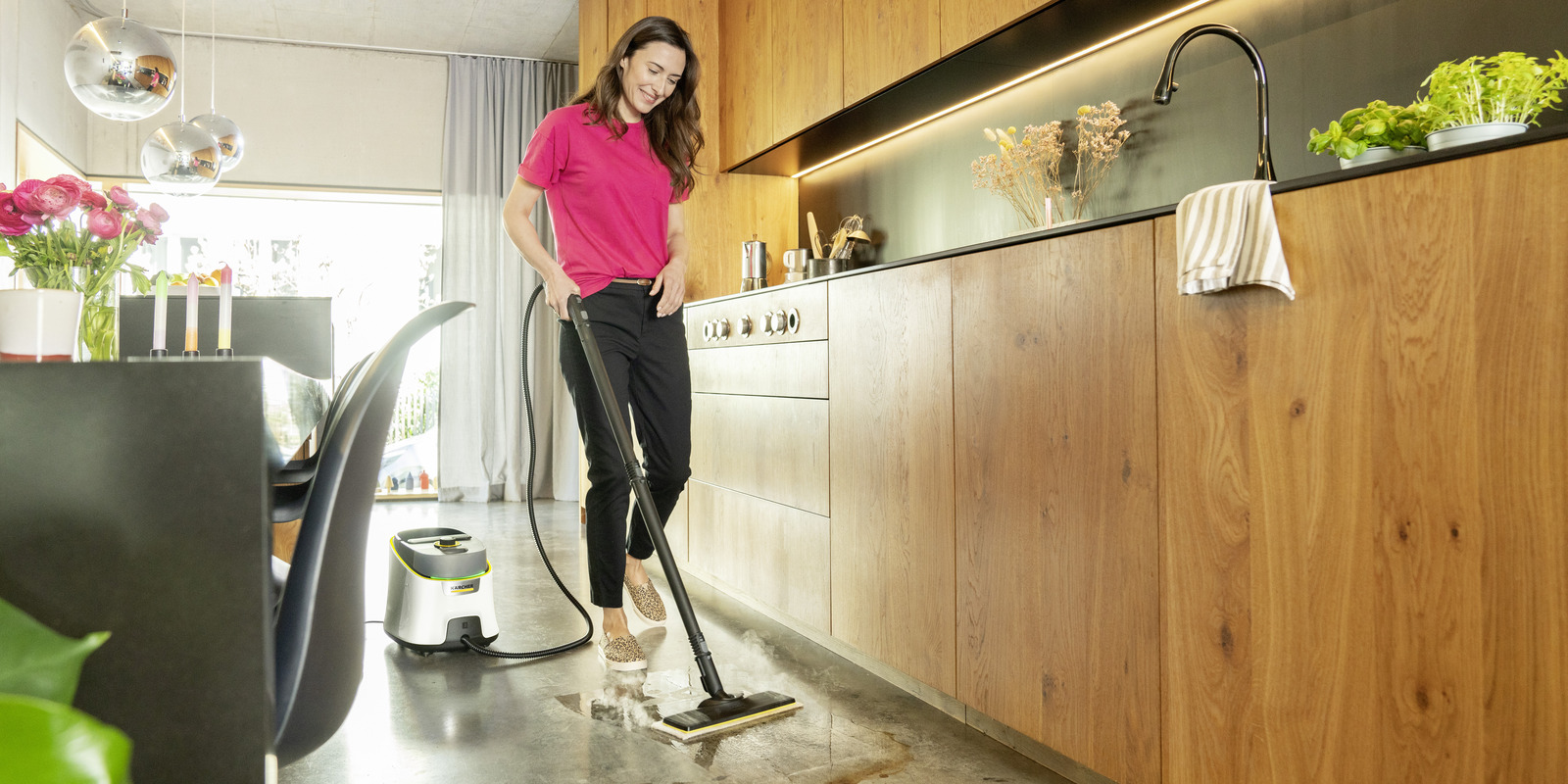Cleaning washbasins and taps
The washbasin is the heart of the bathroom. Yet it sees a great deal of use given that is needed every day, which makes regular cleaning important. Here's an overview of how best to clean washbasins and fittings.
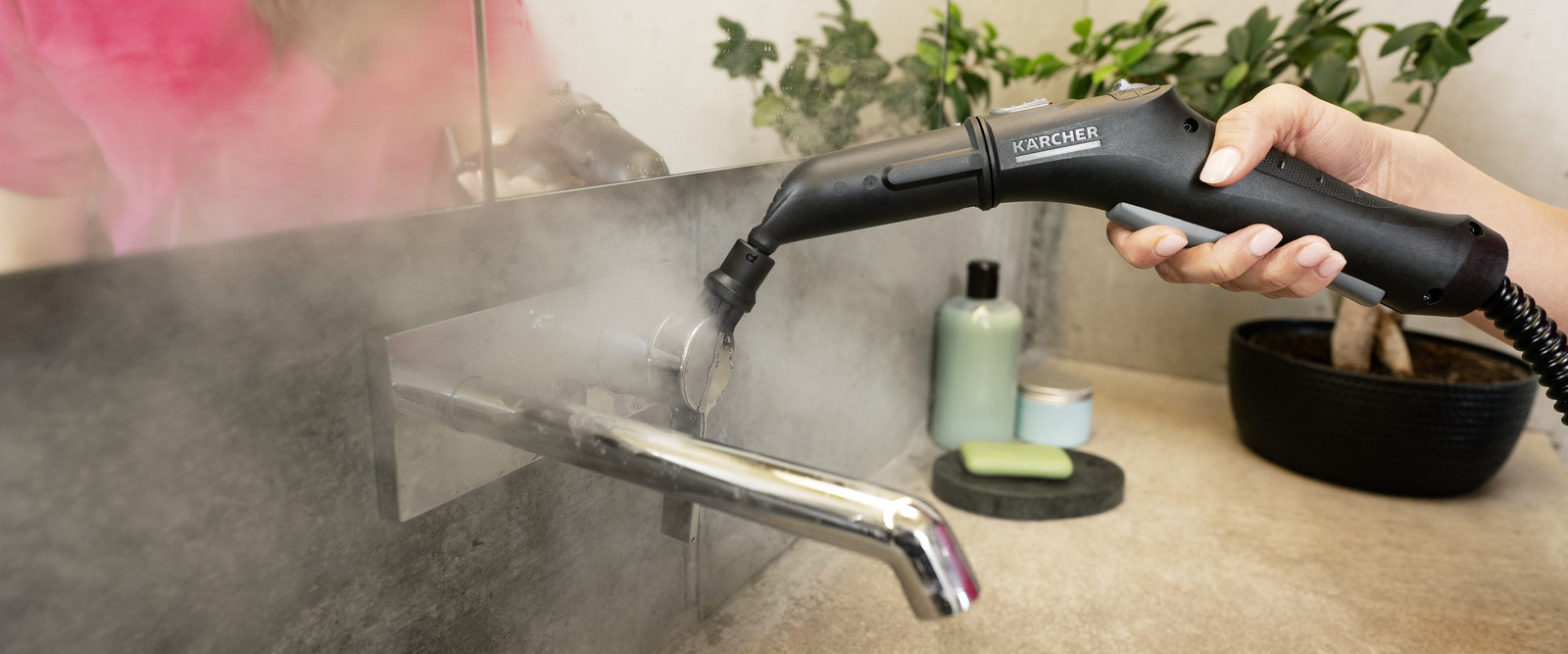
Cleaning washbasins and taps: What to keep in mind
Most washbasins are made of ceramic, mineral cast or enamelled steel. Ceramic is particularly robust and easy to maintain, and enamelled steel is impact- and scratch-resistant. Yet mineral cast washbasins, particularly cheaper ones, are very likely to get scratched.
Regardless of the material, using too much detergent or scouring agent or scrubbing too vigorously with hard sponges may damage the surface of the washbasin. Be careful with taps, too – most bathroom fittings comprise a delicate brass core, which is only thinly nickel-plated or chrome-plated. If the shiny coating is damaged, the core will rust. Therefore, only use detergent sparingly, if at all – ideally, don't use it at all when cleaning taps. Finally, most dirt, such as toothpaste or cosmetics residue, can be removed with clean water. After that, dry the washbasin and taps with a soft cloth.
Tip
Keep a microfibre cloth or soft cloth close to the washbasin so that they are always to hand to quickly dry the washbasin and fittings after each use. A nice side effect of maintaining surfaces properly is that they stay pristine for longer, meaning you don't have to clean them as often.
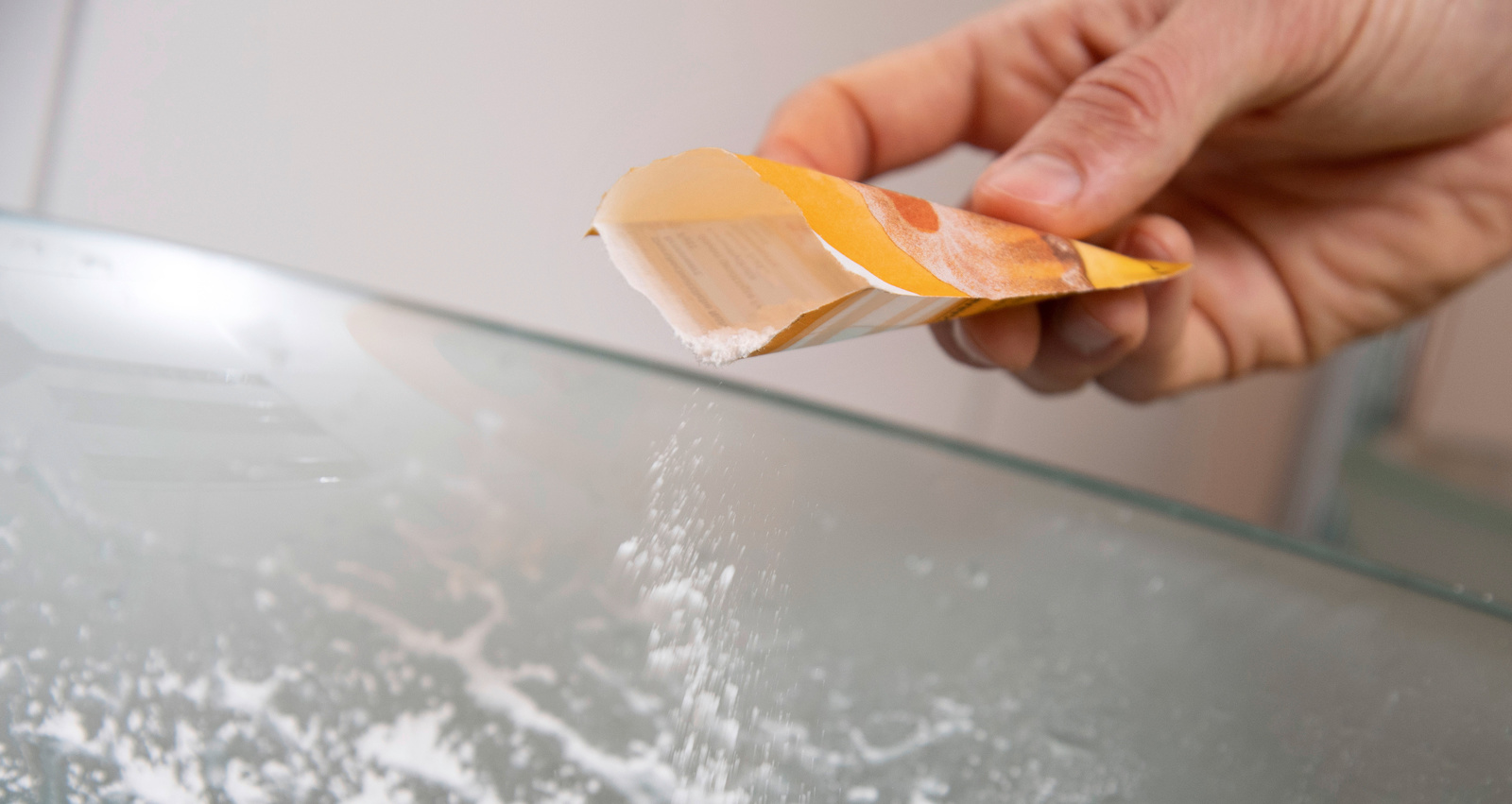
Cleaning washbasins with household remedies
Baking powder is a great household remedy to help keep washbasins clean: Sprinkle the powder onto the wet washbasin, leave it to work briefly, then wipe off with a cloth.
Vinegar also has excellent cleaning power: Mix with water in a ratio of 1:1, apply it to the washbasin and fittings, and use it to clean. The advantage here is that vinegar helps to remove limescale. For significant lime deposits, vinegar essence can also be used undiluted. Soak a cotton cloth in it and place over the affected area. Leave to work for 10 to 15 minutes, then clean the surfaces with a soft sponge and clean water. Then dry everything thoroughly with a microfibre cloth. Citric acid can be used as an alternative to vinegar.
Caution: Vinegar or citric acid should not be used on washbasins made of mineral cast because the acid may attack the surface.
Tip
Light scratches in ceramic can be polished out with toothpaste. Simply spread on the scratch and scrub with an old toothbrush. Afterwards, polish again with a microfibre cloth – soon your washbasin will shine like new.
Cleaning washbasins with detergent
If you'd like to use detergent, clean the washbasin with an acidic sanitary cleaner (pH value between 0 and 4). Ideally, apply the cleaner to a damp microfibre cloth and use it to wipe everything. Rub dry with a dry cloth afterwards. The cleaner can be applied directly onto the washbasin and then wiped with a cloth. However, never spray cleaner directly onto fittings, since the brass core may be damaged if the spray mist penetrates it.
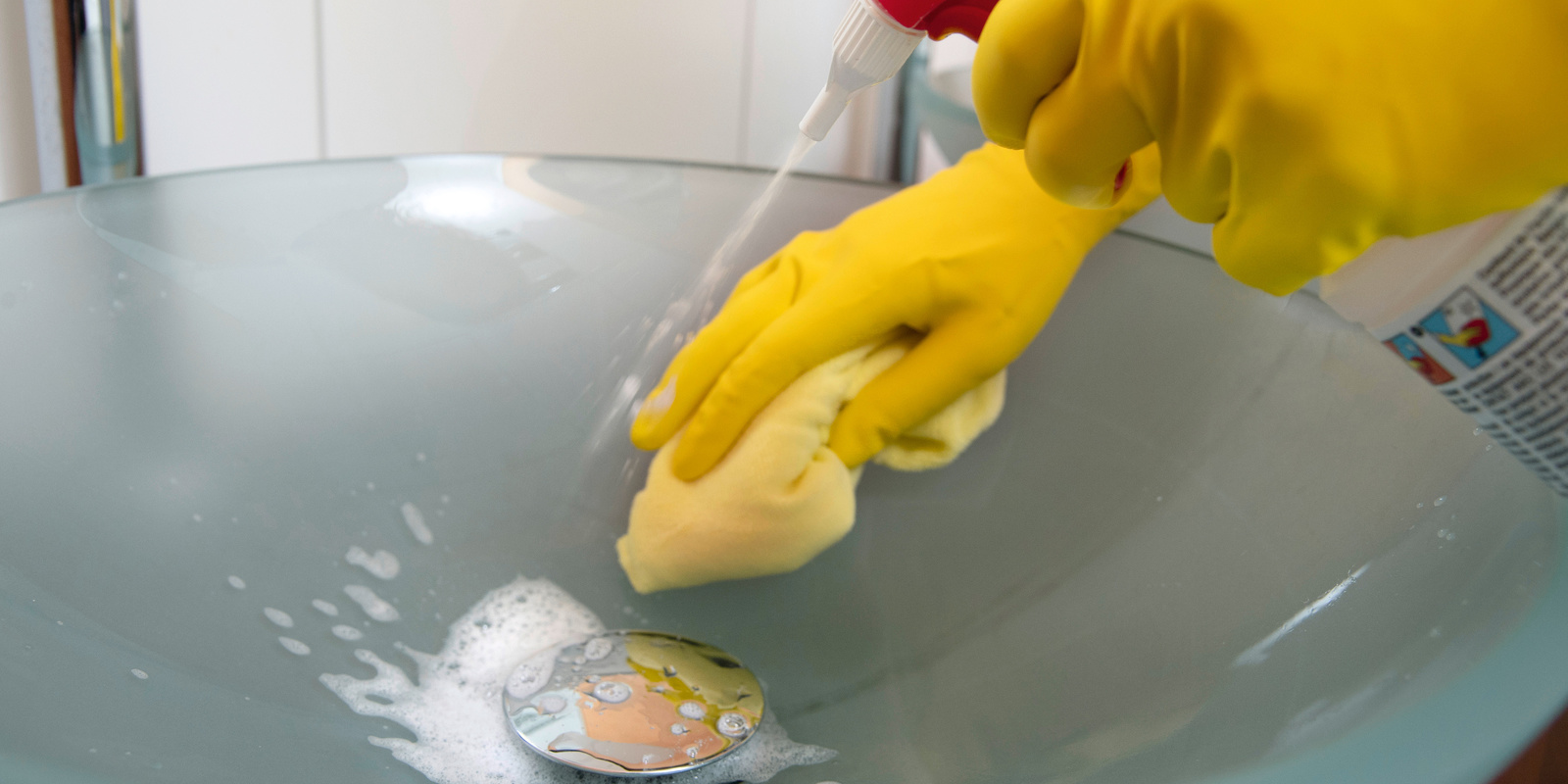
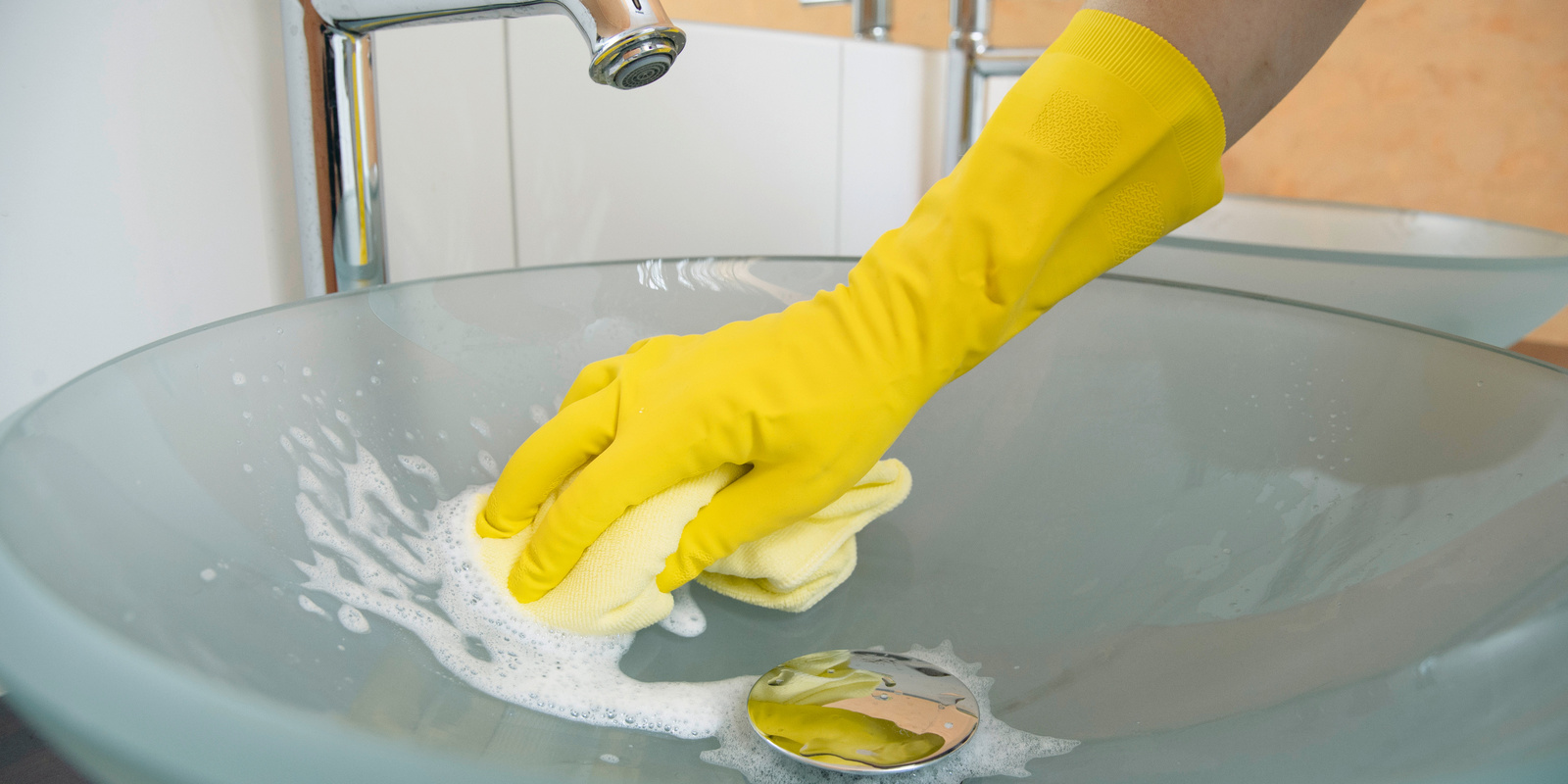
Cleaning the washbasin with a steam cleaner
The washbasin can be cleaned especially thoroughly with a steam cleaner. The advantage here is that the steam gets into places that are difficult to reach. For example, the washbasin's overflow accumulates dirt over time, which is challenging to remove by hand. The steam cleaner's detail nozzle easily steams the overflow and the dirt automatically ends up in the drain. A steam cleaner can also be used to clean the drain.
Dirt builds up in tap aerators and flow regulators on taps, which can also be cleaned with the detail nozzle or small round brush on the steam cleaner. To do so, hold a cloth at some distance over the area that is being steamed to protect from splashes. The dirt will come off and land in the washbasin. If the tap is significantly affected by limescale, however, other methods must be used.
The rest of the washbasin can be cleaned using the hand nozzle with microfibre cleaning cloth or the round brush. A flexible hand nozzle helps when cleaning curved surfaces. Afterwards, dry everything thoroughly with a microfibre cloth.
